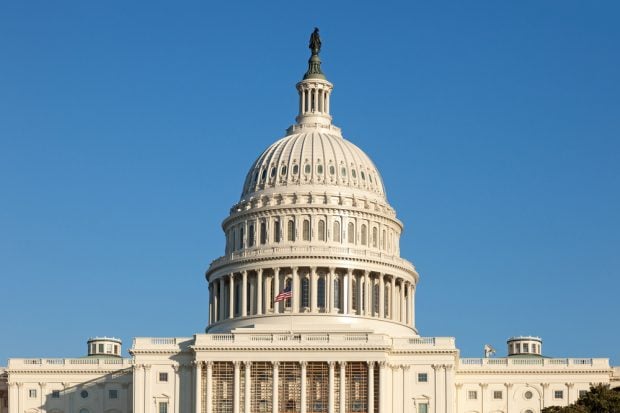 U.S. Capitol building. (Source: Shutterstock)
U.S. Capitol building. (Source: Shutterstock)
CUNA President/CEO Jim Nussle asked members of the Senate Banking Committee to dismiss objections made by bank groups to banks that decide to sell their businesses or branches to credit unions.
Nussle said banks are asking the government to place restrictions on banks that would interfere with banks' fiduciary duty to make decisions in the best interests of bank shareholders. Nussle also said sales to credit unions are more likely to benefit the banks' communities than sales to banks, especially large ones.
Recommended For You
Nussle's comments on bank sales were one of several issues he addressed in an eight-page letter to the Committee on Banking, Housing, and Urban Affairs as written testimony for its hearing Tuesday on "Oversight of Regulators: Does our Financial System Work for Everyone?"
Other issues included CUNA's opposition to granting the NCUA greater authority to raise premiums for the Share Insurance Fund, and asking NCUA to continue its COVID-19 policy accommodations, including a recently adopted interim final rule that continues relief provided in a 2020 rule related to prompt corrective action (PCA).
Nussle questioned the motives of the American Bankers Association and its cohorts wheeling out their resources to attack the "relatively rare phenomenon" of banks that choose to sell to credit unions.
 Jim Nussle
Jim Nussle Banks collected $6.2 billion from 2012 through 2020 on 39 sales to credit unions, while collecting more than $2 trillion through more than 2,000 deals with other banks. CUNA derived the tally from research from the St. Louis Fed for 2012 through 2018 and updated it with data for the past two years.
"To say they are making a mountain out of a molehill would be grossly exaggerating the size of a molehill," Nussle wrote.
In about 80% of these deals, banks chose to sell to low-income designated credit unions, where more than half of their members typically have incomes below 80% of the area median income.
"When a bank sells to a credit union, it is very likely that the bank facilities will continue to serve the community and that the credit union is one that has a particular focus on low-income individuals and families," Nussle wrote. "When a bank sells to a credit union, the community is the winner: A potential banking desert is prevented, and the community continues to receive locally provided financial services but now in the form of a member-owned credit union."
Nussle listed reports in which credit union members and bank customers said credit unions are "more consumer-friendly, more trustworthy and an overall better value than banks." They included:
- A recent Morning Consult study that found consumers are twice as likely to "agree strongly" that credit unions "act in consumers' best interests and are good corporate citizens" compared to the same answer about banks.
- Gallup research found that "credit unions have built strong member relationships by using a personal approach, thoughtful products and member-centric service models to help members manage their finances." It found 46% of credit union members "strongly agree" with this statement about their credit union, while only 31% of bank customers felt similarly.
- A March 2018 article in Consumer Reports that stated: "Credit unions are among the highest-rated services we've ever evaluated, with 96% of our members highly satisfied … that satisfaction is driven by good customer service, not surprising when you consider that credit unions are owned and managed by their members."
In April, the Independent Community Bankers of America criticized Vystar Credit Union of Jacksonville, Fla. ($11 billion in assets, 778,348 members as of June 30) for agreeing to buy the $1.5 billion Heritage Southeast Bank of Jonesboro, Ga., for $189 million, the credit union industry's largest-ever bank acquisition.
The ICBA said the deal showed credit unions were using the money they save as part of their tax exemption to purchase community banks. The trade group renewed its call for Congress to investigate whether the tax exemption is outdated.
Nussle did not address the Vystar deal in his letter, but said bank trade groups have opposed the credit union since their not-for-profit purpose and tax-exempt status was enshrined in legislation in the 1930s.
"Their propaganda and talking points have not changed since the 1930s, when Congress entrusted credit unions to help earners rebuild amid the Great Depression.
"Credit unions were established as not-for-profit financial cooperatives to meet the needs of consumers, small businesses and communities that were not being served by commercial banks and that were being taken advantage of by usurious payday lenders," he wrote. "These problems continue today, but to a smaller extent than they otherwise would because credit unions compete in the market and consumers choose credit unions."
© Touchpoint Markets, All Rights Reserved. Request academic re-use from www.copyright.com. All other uses, submit a request to [email protected]. For more inforrmation visit Asset & Logo Licensing.







